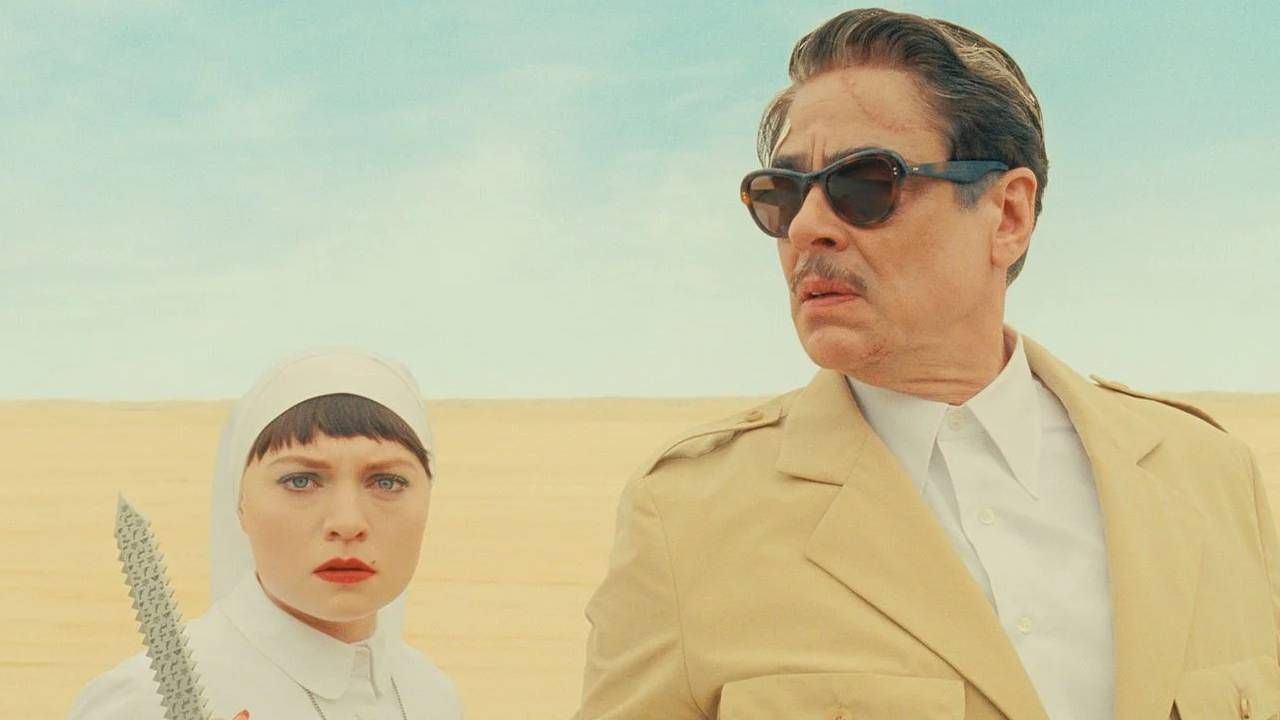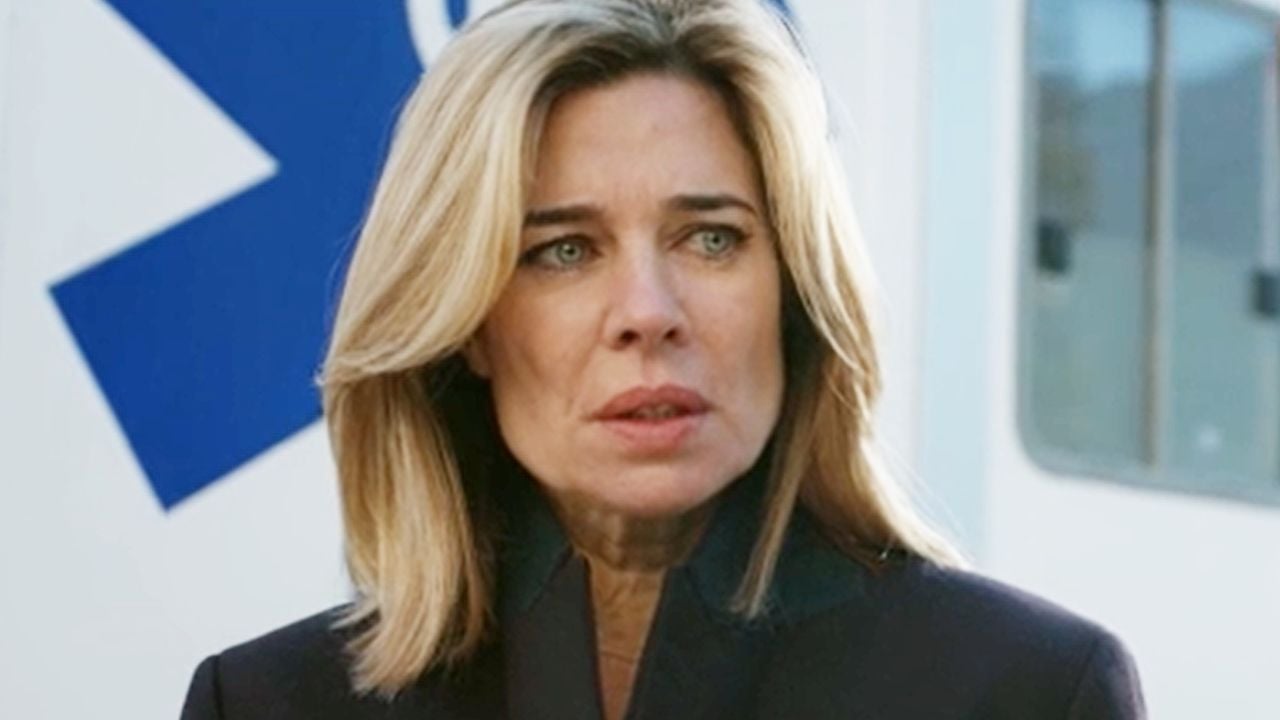Passed through the competition of the 2025 Cannes Film Festival, “The Phoenician Scheme” quickly released in French theaters, accompanied by the usual clichés that surround Wes Anderson. And that are not quite true.
The clichés have hard skin (it's part of their nature) and those surrounding Wes Anderson are no exception. For many spectators, certainly more and more numerous, his work would be nothing other than a cinema of a decorator, of which only beautiful images emerge, composed in a symmetrical way with a real sense of detail, and which one views as a book whose illustrations we look at instead of reading the text. Which is false, even if it remains attached to this immediately recognizable style when its staging seems more and more radical.
The misunderstanding Wes Anderson
Anyway, there seems to be a misunderstanding with Wes Anderson for a long time, not to say always. With his Dandy look and his love from Paris, where he saw a good part of the year, we could consider him as a British director with a little French blood. Lost: he's American. But not New Yorkers like his occasional co-script Noah Baumbach, no. He is as Texan as Matthew McConaughey, born the same year as him, in 1969. And the received ideas around his cinema come back as regularly as he signs a new opus, that is to say every two years since the COVVID.
Renouring with the family theme at the heart of the Tenenbaum family, aquatic life or on board Darjeeling Limited, The Phoenician Scheme is, in fact, as different from Asteroid City as the latter was from The French Dispatch, despite faces that often come back to always say. To make it short, the twelfth feature film of the Texan director combines the intimate phase of his career, developed at his beginnings between 1996 and 2008, and his political side, at work since 2010. With humanism as a trait of union.
A place of choice at death
Like the Mr. Fox of his animated film, Wes Anderson is a rebellious and subversive artist in Dandy costume, who uses the shape of the fable to evoke our world and offers a place of choice to death, which occupies a growing place in its colorful universe, where miniatures encapsulate our society while the square format of its images become the symbol of a planet that is no longer round. In addition to being anchored in the interwar period and describing a Europe in mutation (as its cinema was then), The Grand Budapest Hotel was thus echoing the various migratory crises, in the same way as the island of dogs, its other jewel in hitchhiking.
His most violent film
Which was then seen, by Telerama, as a “Political and abundant political film”compliment that can today apply to The Phoenician Scheme. Two years after having evoked the fear of the void for an allegory of our lives during the COVVID in Asteroid City (his first opus shot since the start of the pandemic), he invites us to an exotic adventure in the form of a criticism of capitalism (as Fantastic Mr. Fox was) and signs his most violent film, in which the main character played by Benicio Del Toro escapes several attempts While another explodes under the effect of a grenade. All with this science of gap which is his.

Universal Pictures International France
“People say that his cinema is cartoony”we answer Benicio Del Toro when we mention with him the clichés on the work of Wes Anderson that this opus contradicts. “Not only because he is violent and bloody. He tells the journey of a human being who becomes better, in an epic and poetic way. The dreamlike sequences have a meaning: they tell us about this character, and all those around him also evolve. It is an optimistic and hopeful film. But the films of Wes Anderson, for me, are rich and complex, like the best novels I read. Messages, a lot of reflections.
A shield in front of the world
Son of divorced parents, Wes Anderson digs a little more here this idea, recurrent in his filmography, of the family nucleus as a shield in front of the world around us. Dad of a little Freya since 2016, he tells here the relationship between a father and his daughter, a great first in his cinema which gives The Phoenician Scheme of accents a little more personal and human, behind this palpable anxiety of the chaotic world in which she was born and grew day after day. With, perhaps, a form of mea culpa for his absences during the filming of The French Dispatch (in France and more precisely in Angoulême) and Asteroid City (in Spain).
So there is a style, recognizable at the first kick-at-oeil and whose main interested party does not seem to want to get rid of. Yes. But reducing Wes Anderson to a simple vignette maker devoid of souls or words is still as false today as ten years ago, and The Phoenician Scheme only proves it more, by bringing together some of his favorite themes (this is not an author for nothing) in a colorful journey in different places of the globe, on the background of industrial espionage, which constitutes as well as a bubble that as well as a bubble which We protect us for a hundred minutes.
“Wes Anderson's films are rich and complex, like the best novels I read”
In the form as much as on the substance, the feature is in line with the previous ones as much as it stands out. A break (gently) in continuity and new proof that Wes Anderson does not offer us the same film with each release, which Richard Ayoade will not contradict us: “Each of his films contradicts the clichés about him”the actor tells us. “This will not be an exception, and even to review him calls into question what you were thinking about it.”
“Very often, as a fan, you have almost the way that the film is identical to the previous one because you really liked it. You have to see it once and say to yourself: 'OK, it was not Rushmore. It is the Tennebaum family and it's great. But I have to see it again because Rushmore still touches me a lot.' The problem of Wes Anderson is that there is an excess of love towards his films, which must be overcome in order to be able to see the next and appreciate the differences. “ And it may be the case (in two years?) With the successor to The Phoenician Scheme, who could gain popularity over time by proving that he is not a repetition of his previous opus.
Interview by Maximilien Pierrette in Cannes on May 17, 2025



